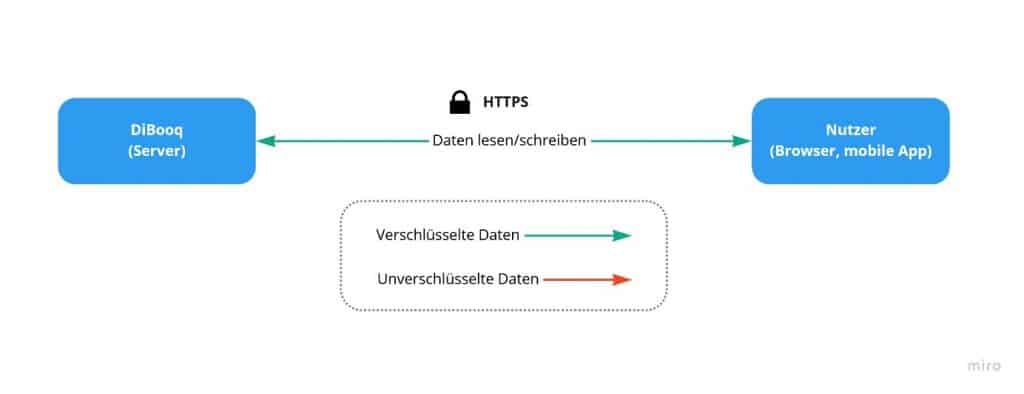Description of services DiBooq
1. Overview
For the Dibooq desktop app and the Dibooq mobile app (hereinafter also referred to as ” Dibooq “), the following content and functionalities that describe services apply:
1.1 Scope of functions of the Dibooq desktop app
The Dibooq software is a software-as-a-service solution for handling the administrative processes of holiday real estate agencies. The functions of the Dibooq software include in particular:
Owner occupancy calendar in real time
Real direct booking directly in the owner’s calendar
Complete history for all occupancies
Prepare owners calendar and then invite owners
Direct booking for the agency website
1.2 Functional scope of the DiBooq Mobile app
The DiBooq Mobile app offers property owners (“owners”) the opportunity to manage all occupancies of their own holiday property. The owner can share his occupancy calendar and his contact details via the DiBooq mobile app with different user groups (agencies, family & friends, regular guests, service providers, etc.) in real time by inviting them to collaborate in DiBooq. The owner can define booking conditions under which it is possible for the linked user groups to enter bookings directly in the booking calendar by the owner (“Direct Booking”) or to make booking inquiries that can be confirmed or rejected by the owner within the system (“Booking Inquiry “). Mobile app Mobile app.
1.2.1 For owners
Posting data on your own property (s)
Management of the booking conditions for the property (s)
Creation and administration of occupancies
Release of contact data for different user groups (agencies, family & friends, regular guests, service providers)
Release of the occupancy calendar for different user groups (agencies, family & friends, regular guests, service providers)
Confirmation or rejection of occupancy requests within the DiBooq app
Inquiries about booking changes or cancellations on bookings entered by a linked contact
View of histories of occupancy processes
1.2.2 For Family & Friends (via a separate mode in the DiBooq Mobile app)
Availability of linked holiday properties can be viewed in real time
Send booking requests for free periods directly to the mobile app owner
History of confirmed trips can be viewed
1.3 Ownership of the content
All content that you import into Dibooq remains your property.
2. Administration
2.1 Support
For support, see the respective DiBooq desktop app and DiBooq mobile app terms and conditions.
2.2 Backup and Disaster Recovery
We ensure the regular backup of the data processed and the results generated within Dibooq and carry out regular backups.
2.3 Erasure of data
The deletion of the data is carried out automatically by the respective user of DiBooq. In addition, the administrator has the option of centrally deleting all account and user data.
In both cases, the data will be permanently and irreversibly deleted immediately after the data has been deleted.
With the deletion, only the personal data of the user are deleted. All data that are necessary for the continued operation of the platform and the use of the previously created assignments are retained.
The deactivation can be done manually or automatically (after 3 months without use). When deactivating, all data are initially retained.
Deletion can also be done manually or automatically. If the user deactivates his account but does not delete it manually after one year, he will receive a reminder after one year and a request to delete or reactivate it within 14 days. If he does not comply, the account will be deleted and with it all personal data.
Upon deletion, the user receives an email confirming the deletion.
3 Information security
The security of data in Dibooq is ensured by a number of technical and organizational measures.
3.1 Data location
The processing and storage of the data takes place on systems from e-pixler NEW MEDIA GmbH, hosting location Germany.
3.2 Encryption of content (“data at rest”)
The server-side encryption offered by e-pixler NEW MEDIA GmbH is used. Passwords are encrypted in the data center before they are written to the data carrier and decrypted again when they are read.
3.3 Transport encryption (“data in transit”)
The transport encryption (“data in transit”) takes place as follows.

Further transport takes place within a virtual, private cloud using an access key, protected from external access.
3.4 Isolation of clients
Dibooq provides for a strict separation of data from different clients. A client ID is used for this, which guarantees the direct assignment of data to clients. This client separation is continued within Dibooq. All data is processed and stored in isolation between the respective users.
3.5 Access logging
We collect usage data about the detailed use of Dibooq about the actual accesses to Dibooq. This includes, for example, the number and type of measurements carried out and the settings used.